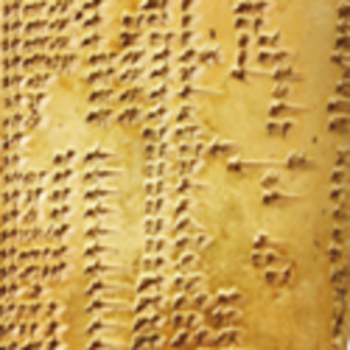Epistemische Kategorien II: Die Sprache des Bewusstseins und das Bewusstsein von Sprache im Alten Orient
Workshop des Teilprojekts A01 „Episteme als Konfigurations-Prozess: Philologie und Linguistik im ‚Listenwissen‘ des Alten Orients“, 17.–18.11.2014
23.12.2015
The workshop brought together leading specialists in the languages of the ancient Near East as well as the Eastern Mediterranean to discuss metalinguistic awareness in each of these groups of material. These traditions make relatively little use of explicit metalinguistic discussions, but often use other semiotic devices or practices to mark metalinguistic usage such as the reconfiguration of inherited materials, the alternation between different orthographic encodings or the use of semantic determinatives of one kind or another. Several papers looked at the long history of the non-phonological encoding of semantic categories (Selz, Rochberg, Payne), and several others at the question of the relative fixity and ideological significance of syllabic orthographies (Wilhelmi, Worthington, Delnero), while a third group dealt with Mycenean Linear B materials and present-day analogues (Hajnal and Pettersson). Overall, the workshop highlighted the key significance of metalinguistic awareness in the ancient world and emphasized the need for further research on the topic.
